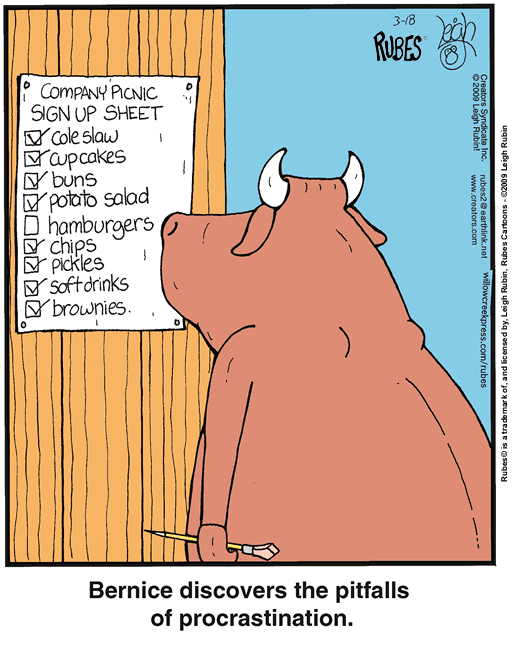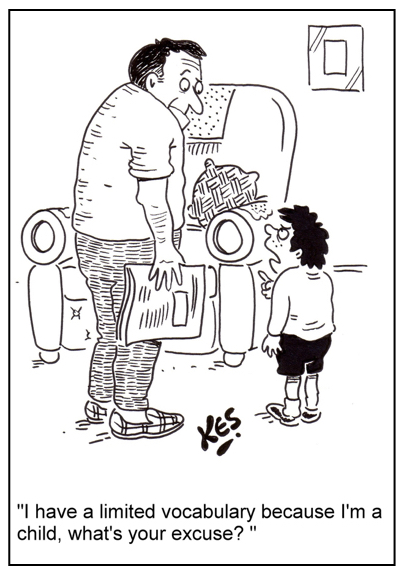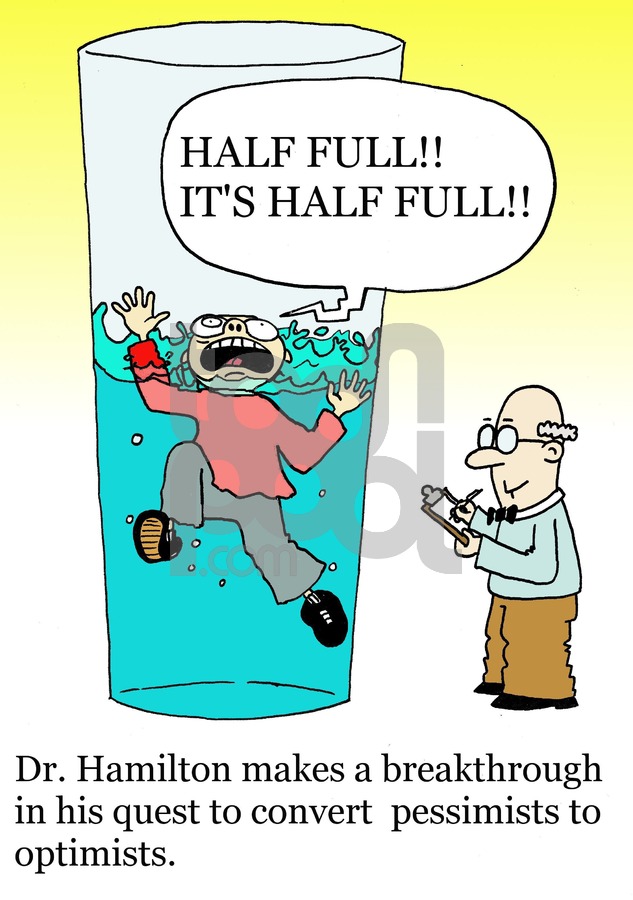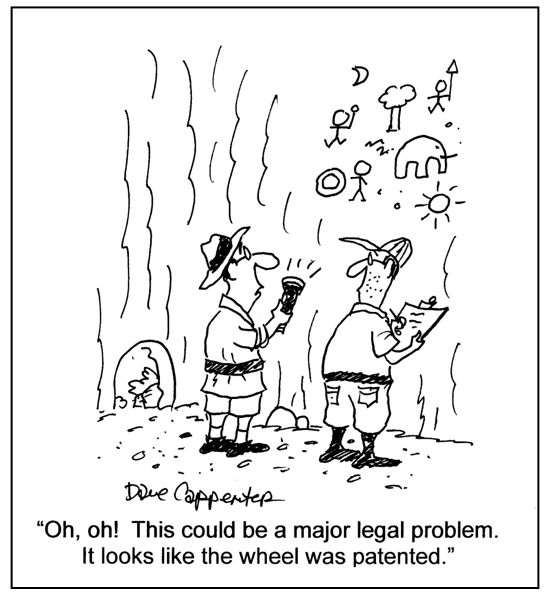 If something must be done sooner or later, sooner is better.
If something must be done sooner or later, sooner is better.
Procrastination is a vice; promptness is a virtue.
I prefer people who have a bias toward action. Give them a job and it will be done. They stay busy. At work, if they finish their assigned work and have time left over, they look for something else to do.
I also admire people who get work done sooner rather than later. It’s not just that they work fast (this, too, is a virtue); they start early and finish ahead of schedule.
There are advantages of doing work sooner rather than later:
- Unpleasant tasks will not inordinately affect us. We often postpone the unavoidable when we perceive it to be unpleasant. But when we aggressively pursue all tasks, the unpleasant ones won’t haunt us.
- Quality will improve. Quality often suffers when we do something at the last minute. Quality improves when we give ourselves sufficient time to complete a task.
- We can recover from mistakes and setbacks more quickly. The noted philosopher Mike Tyson once mused, “Everyone has a plan until they get punched in the face.” It’s true: projects seldom follow an ideal, predictable path. By starting early, necessary changes are more easily negotiated.
- Some tasks will take longer to complete than we think. Starting early will provide needed margin to finish on time.
- Completing responsibilities early will provide us with peace of mind; we can cease pining and relax.
Consider these scenarios:
- You know your IRS tax return is due on or before April 15; why not complete it in February?
- Why not write that thank-you note soon after you receive the gift, instead of waiting several weeks?
- This week, you need to have a tough conversation with one of your team members. Do it on Monday instead of later in the week.
- Plan your vacation a year in advance.
In my organization, we plan at least 12 months in advance. We visualize what life could look like 365 days from now and make a commitment toward it. We’re also flexible, realizing that plans may change, but it sure helps to prepare ahead of time.
Sometimes, there may be an advantage in delaying action. The extra time may allow you to get more and better information. Circumstances may change which will affect your task. But as a rule, be aggressive in getting work done.
Do things sooner rather than later.
[reminder]What are your thoughts about this essay?[/reminder]
[callout]Lead Well 2-day workshop – September 21-22, 2016 in the DFW metroplex. Two intense days of life- and career-enhancing training. More information at learntoleadwell.com[/callout]

 Men imagine that their minds have the command of language, but it often happens that language bears rule over their minds. Francis Bacon
Men imagine that their minds have the command of language, but it often happens that language bears rule over their minds. Francis Bacon Each of us carries a word in our heart. For some of us the word is “yes.” Yes, we believe we can succeed. Yes, we can learn. Yes, we can make a difference. Others carry a “no,” with all the negative baggage that accompanies it. As leaders, we must realize which word we carry and how it enhances or inhibits our ability to lead. Martin Seligman
Each of us carries a word in our heart. For some of us the word is “yes.” Yes, we believe we can succeed. Yes, we can learn. Yes, we can make a difference. Others carry a “no,” with all the negative baggage that accompanies it. As leaders, we must realize which word we carry and how it enhances or inhibits our ability to lead. Martin Seligman Most everything I’ve done I’ve copied from someone else. Sam Walton
Most everything I’ve done I’ve copied from someone else. Sam Walton